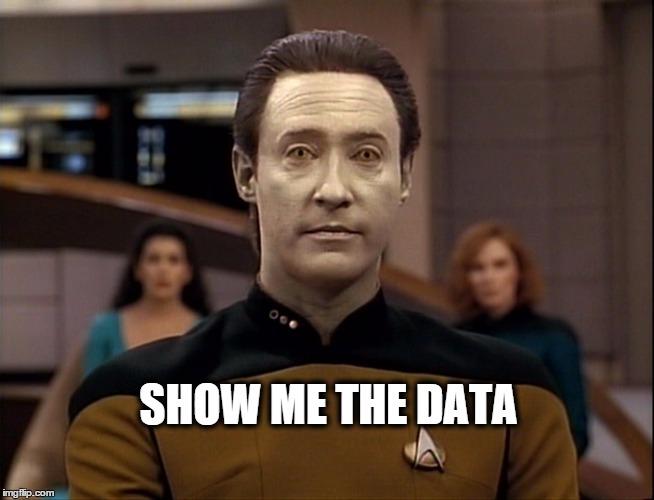
Just this weekend, I read a piece on CNN by a meterologist who had, for years, been on the “nah” side of the climate change debate. He posted a somewhat apologetic piece stating that, “You know, now that I’ve thought about it, I think I was wrong. Climate change is real, and here’s the data that caused me to change my mind.” It was a wonderful, informative piece but couched in the somewhat subtle assumption that he was feeling a little ashamed of having to admit he was wrong, and that makes me sad.
The first time I agreed with a client that we should no longer give a certain vaccine, I thought I was going to have to call an ambulance.
“You- you’re not going to insist I vaccinate my cat for FIP?” she gasped. “I thought that was all you did, like all vaccines all the time.”
“No,” I said. “I’ve reviewed the evidence and I think it just isn’t there for this vaccine. This is no longer something I recommend.” I paused for emphasis. “I still want to do FeLV and FIV today, though.”
People sure do love to see things as absolutes: Vaccines are bad. Vaccines are good. Commercial pet food is the devil. No, it’s perfect. You must pick your battleground, plop down your flag, and stay there till you die. We live in a world that elevates those who stand strong to their values, beliefs, or opinions, and sneers at those who refine their views as wishy washy flip-floppers.
Being Wrong Is Not a Character Flaw
That seems kind of silly to me. Worse yet, it’s arrogant, this idea that the very first opinion we decide upon will be perfect and correct for the rest of our lives. If I’m on the battlefield and it’s clear I’m losing, I have no desire to die with the flag- I’m running. Game over, this was a bad idea.
In the case of the FIP vaccine, it was very popular right around the time I graduated- that, and Giardia vaccine. There was controversy. There were people who gave it all the time, some who gave it some of the time, and others who gave it not at all. We all spoke with each other and shared information and the current recommendations are based on facts we know, not opinions we thought we knew. In other words, we scienced it.

This happens with other things too- timing of spay/neuters, dry vs canned food for cats, pain control in pets. Remember when people used to just give one pre-op injection of torb for spays? I do. I shudder to think of it. We were wrong. Here’s just a few things I’ve refined my thoughts on since graduation:
- the idea pets don’t need super aggressive post-op pain control
- when to use steroids in trauma
- declining certain elective surgeries- declawing, for example
- the idea that kids should never attend euthanasias
Contrary to what some people might think, I feel no shame admitting I was wrong in any of those things. We seem to conflate data with personal values these days, to our loss as a society. As a profession, we push each other every day to justify our decisions, validate them, and refine them based on science. It’s a natural consequence that we change our recommendations based on that. I would be worried if we stopped doing that, because that means we stopped asking questions.
Our Major Character Awe
I don’t know any veterinarian who doesn’t approach their medicine the same way. This is what we do and why we spend so much time at CE conferences, right? And yet we allow people’s perception that change = bad to make us feel like we’ve done something wrong by changing our minds. Finding out something you believed is wrong based on current information isn’t a character flaw. It’s a character AWEsome. It means you’re humble enough to recognize you don’t know everything. I know, the current state of politics (on all sides!) makes it hard to remember that mature adults do that, but we do.
I propose a change in how we view ourselves: We’re not wishy-washy, weak minded people who can’t make up their mind and melt under pressure.
We’re evolvers! It’s silly not to! If Mario can evolve and get better, so can we, and it doesn’t mean the old Mario wasn’t wonderful back in the 80s when it was all we had.
Let’s OWN our ability to be wrong and not feel weird about it! Next time someone tries the old “A HA! I knew you were wrong!” routine on you, just smile and say, “Well, now we know differently. Isn’t it great? So can I give this vaccine or what?”
The views and opinions expressed in this article are those of the author and do not necessarily reflect the position of the DrAndyRoark.com editorial team.